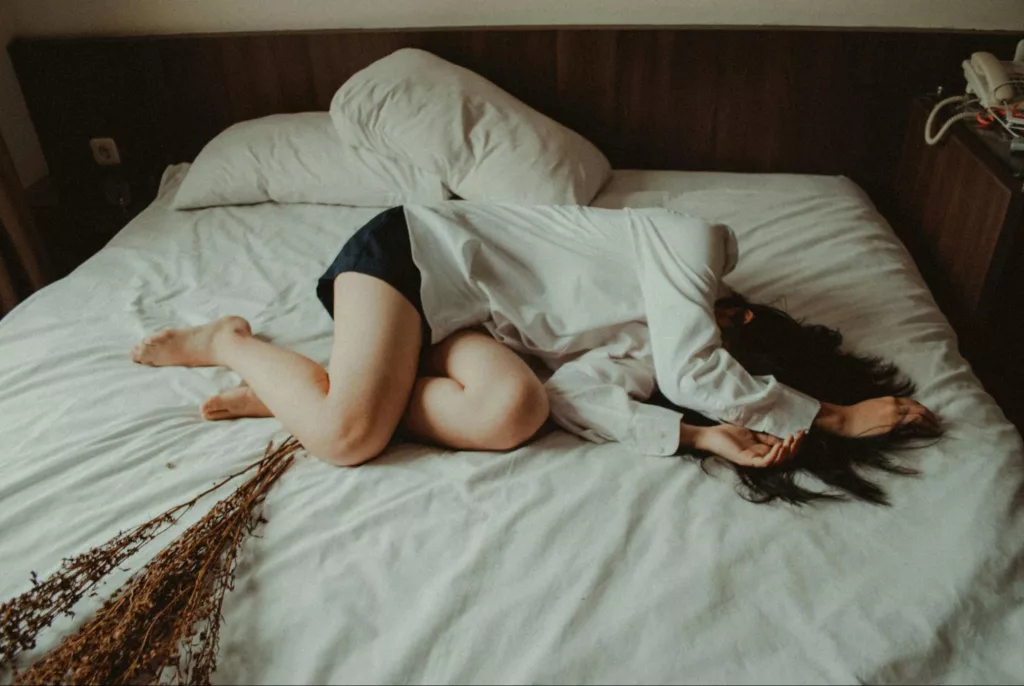Sleep support at menopause, what you need to know
Sleep has such an impact on how we feel day to day, aswell as on our long-term health and wellbeing. In this blog, I’ll explore how hormones influence our sleep, and measures we can try to improve our sleep pattern.

The impact of hormones
Our sleep is affected by our hormones. It varies with our menstrual cycle, typically being at its best just after ovulation in the middle of the cycle, and at its most disturbed at the end of the luteal phase just before and then during our period. Oestrogen promotes deep dreamy REM sleep. Progesterone is calming for most women, and also supports good sleep. Less melatonin secretion at perimenopause is one of the factors that contributes to poor sleep, and poor sleep itself increases cortisol.
Sleep and perimenopause
At perimenopause approx 50% of women experience sleep changes. There’s less sleep, it’s of poorer quality, and we wake more. Human growth hormone (which helps us burn fat and build muscle mass) is released between 11pm and 1am, so poor sleep at this time can affect weight specifically.
Women with poor sleep in menopause are two to three times more likely to experience depression. Poor sleep at menopause is also linked with cognitive symptoms like brain fog and poor concentration, which can be particularly impactful at work.
Sometimes sleep is disturbed because of other symptoms, like night sweats, joint pain or urinary symptoms. At perimenopause we’re more prone to sleep disorders like obstructive sleep apnoea and restless legs, these conditions need specific treatment, so do speak to your health care professional if you think this applies to you.
Sleep hygiene
To support sleep, it’s first worth reviewing the sleep hygiene advice
- consistent morning and bedtime routine including weekends
- morning daylight for 20 minutes +
- caffeine before noon
- exercise is great, but not too late in the day
- naps before 3pm
- stop smoking
- cut back on alcohol
- minimise glucose peaks before bed
- screen free hour before bed
- dark, cool gadget-free bedroom
- try not to lie in bed awake.
We become increasingly sensitive to both caffeine and alcohol during the menopause transition, and so sometimes need to adjust our consumption bearing this in mind. It can be worth comparing how refreshed you feel in the morning with and without any alcohol the night before.
Sleep support
Cognitive Behavioural Therapy-insomnia (CBT-i) is really effective for sleep disturbances that have been ongoing for a little while. It’s available as a computerised programme free of charge in Bristol, you can self-refer to Silvercloud. There are also private CBT-i therapists who see people for individual face to face appointments, local to me is Christabel Majendie.
HRT is often helpful for the sleep disturbance of menopause, both oestrogen and micronised progesterone can be beneficial.
Sleeping tablets have lots of risks and are not the answer. Some antidepressants have sedative effects though and can be helpful.
Cherry juice, and foods high in tryptophan (chicken, salmon, tofu, dairy, eggs, buckwheat, chickpeas, sunflower seeds) are reported to help but the evidence is minimal.
Magnesium citrate and glycinate are good options as supplements to try to support sleep. Melatonin has some evidence too on a short-term basis, and is something I can prescribe privately.
Exercise, specifically strength training, is beneficial and many people notice better sleep with both acupuncture and massage.
Yoga and sleep

Studies have shown the benefits of yoga in supporting sleep. This is definitely an area where trying to build in a regular practice, perhaps even 5 minutes every day, can be really valuable. Perhaps as part of your morning routine, to help with the next night’s sleep, perhaps as part of your wind down routine before bed, perhaps with breathing exercises to use in the night if you wake frequently.
This could be 5-10 minutes of really gentle movement in the morning linked with some breathwork. In the evening a restorative practice like “legs up the wall” can work well. In the night if you wake counting your breath and if it feels ok for you gently lengthening the exhale can help with sleep e.g. in for 2 and out for 4.
Yoga nidra practices can be really helpful too, and there are many practices available to try on Insight Timer.
Sleep well!
